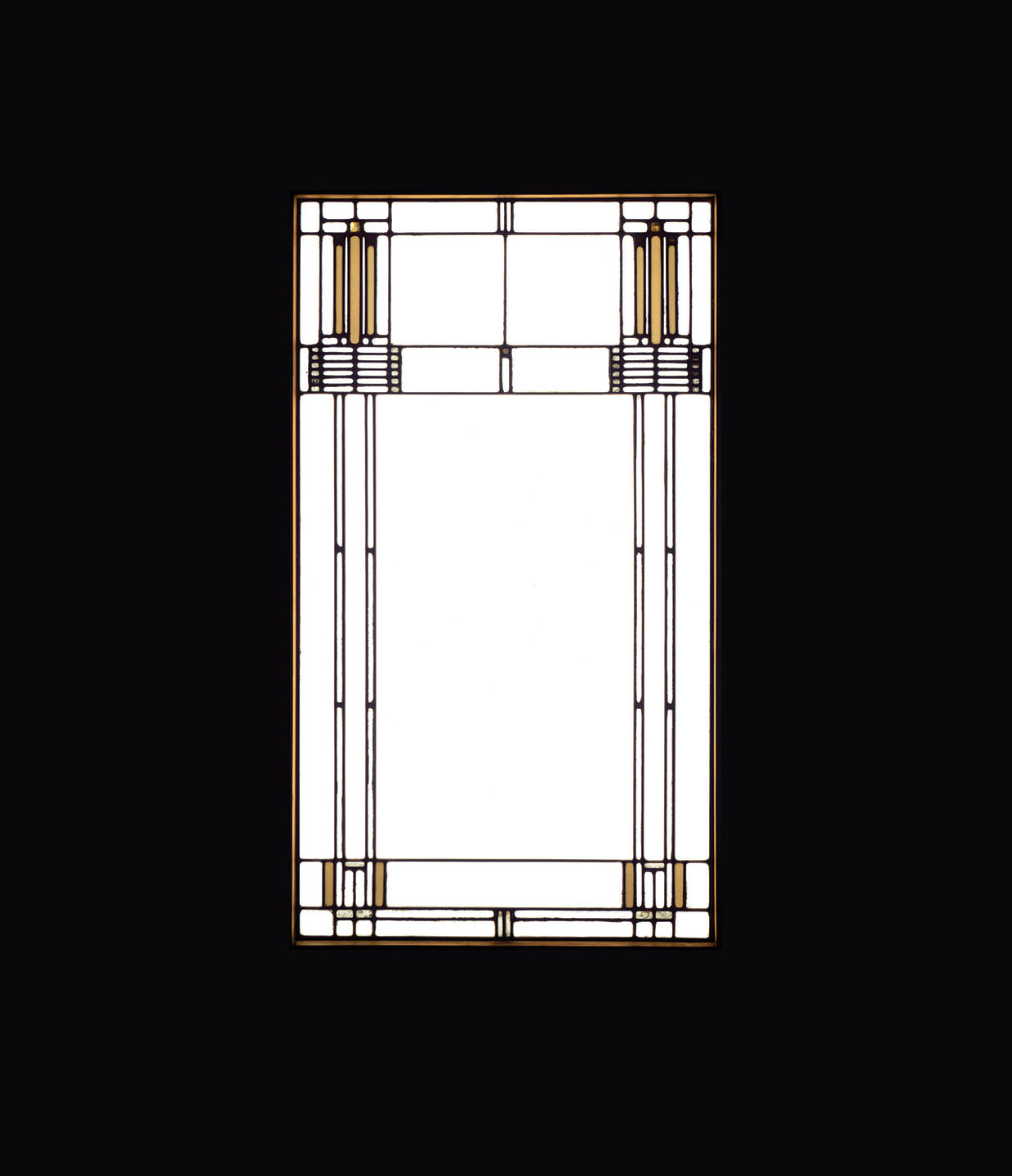Item Composition
Glass
Item Medium
Glass; Other
Item Origin
Chicago, Illinois; Richland Center, Wisconsin
Item Duration at Mansion
Temporary
Summary
Clear glass, opalescent glass, gilded glass, zinc cames, 34 × 26½ inches. Art Glass Window for Ward W. Willits House, Highland Park, 1902. Collection of Chicago History Museum, Gift of the Willits Robinson Foundation
Item Composition
Glass
Item Medium
Glass; Other
Item Origin
Chicago, Illinois; Richland Center, Wisconsin
Item Duration at Mansion
Temporary
In his designs for Prairie-style houses, Chicago architect Frank Lloyd Wright expanded the frontiers of residential stained glass both in use and in design. He combined bold geometric groups of color with clear polished plate glass to form complex rectilinear designs. To hold together the small pieces of glass and support the entire pane, he specified rigid cames—dividers and supports between sections of glass—of zinc or brass rather than malleable lead. Instead of puncturing the facade with individual windows, he set bands of decorative leaded glass casement windows, termed "light screens," throughout the entire building. Similar decorative art glass in doors, lamps, and ceiling lighting reinforced the key elements in the architecture's design and created a harmonious whole.
One of the first houses in which the Prairie-style aesthetic was fully visible was the Highland Park home that Wright completed for Ward W. Willits in 1902. A large two-story structure of wood frame and stucco, it contains more than 100 art glass windows. Their pattern is resolutely rectilinear, with very little color, although gold leaf sandwiched between pieces of clear glass provides warmth and sparkle.
At the time, Willits was vice-president of Adams & Westlake, a large railroad supply house that oper-ated its own brass and bronze foundry. Artist Orlando Giannini, employed by Adams & Westlake from 1894 to 1898, may have introduced Willits to Wright, for whom he was painting a pair of murals in the architect's Oak Park home.
Orlando Giannini became a partner in the art glass firm of Giannini & Hilgart in 1899. Ohio-born Giannini (1860–1928), trained as a sculptor, was the studio's designer; Frederick "Fritz" Hilgart (1867–1943), trained as a glass cutter in his native Germany, managed the shop and fabricated the glass. The firm executed art glass windows and glass mosaic tiles for numerous Chicago architectural firms, including commissions for Wright. The Willits glass work is attributed to the firm based on Giannini's association. The company also designed and created art glass lampshades for Teco art pottery made by the Gates Potteries in Crystal Lake.
Although Orlando Giannini left the firm around 1907, it continued to operate; Giannini & Hilgart still exists in Chicago under different ownership.
Giannini & Hilgart (active 1899–present), Chicago, Illinois, maker
Item Composition
Glass
Item Medium
Glass; Other
Item Origin
Chicago, Illinois; Richland Center, Wisconsin
Item Duration at Mansion
Temporary


